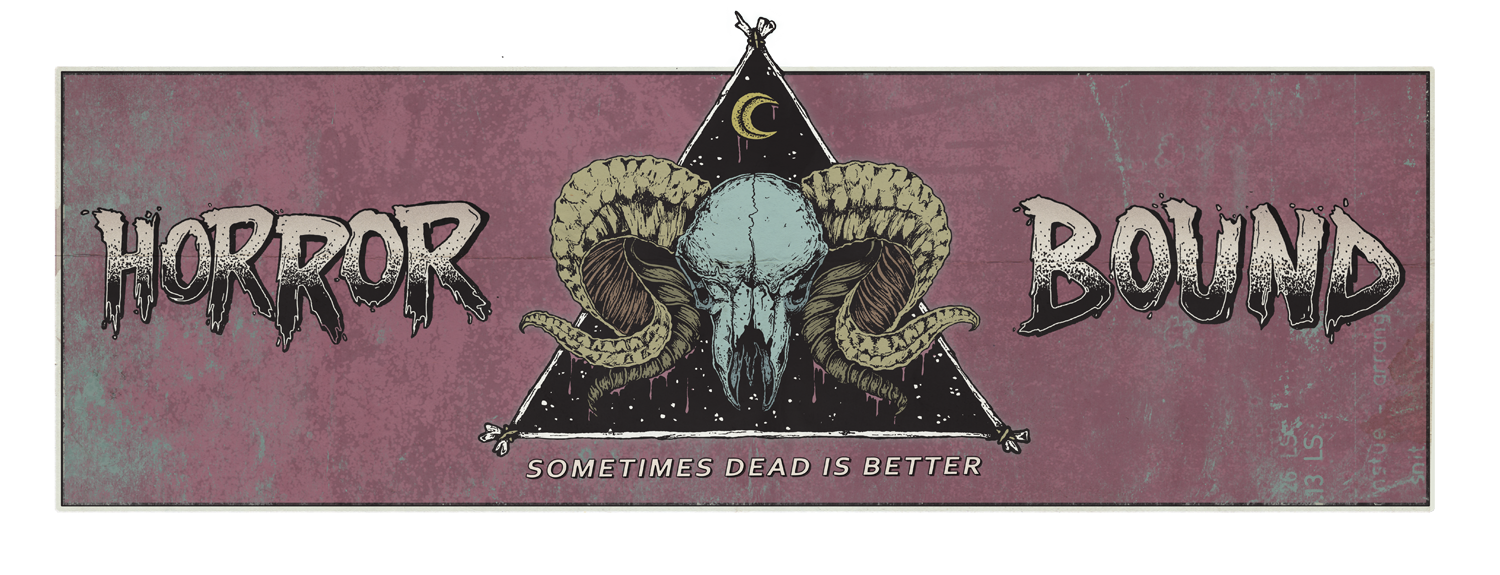Lords of Chaos is Grisly and Offensive and we LOVED IT!
Hello again, everyone. I’m back with another review, this time in the form of Jonas Åkerlund’s biopic Lords of Chaos, about late 80’s/early 90’s Norwegian black metal band, Mayhem. The Swedish director has been best known for directing music videos for the last 30 years ranging from Roxette, to Rammstein, to Madonna. So, it’s no surprise that one of his first full length features would come in the form of a film about a band that’s connected (at least loosely) to the Norseman’s home country and the geographical music history attached to it. After all, black metal, some would say, was practically invented amidst the icy fjords of Scandinavia.
First off, I’ll admit, I had no real knowledge of the source material going in. I knew it was a film about metal music and it was based in the late 1980’s and early 1990’s. For me, that’s enough in itself to warrant a viewing. I was a teenager during that time period, and a burgeoning metal head playing drums in a slew of cover bands. And if this film would have come out 30 years ago, I would have been thoroughly aggravated. You see, this was a dark time for Heavy Metal music in general, especially in the media. Ozzy and Judas Priest were both in and out of the courts defending themselves against claims of suicidal messages in their music, Dee Snider of Twisted Sister fame was testifying in Congress for freedom of speech and expression in music lyrics, and Tipper Gore (yes, Al’s wife) had formed the PMRC, which was a parental group hell bent on labeling offensive material on the retail front. Good times. So, the last thing we would’ve needed here in North America, would have been more negative press to feed the flames of what was already a colossal brush fire.
Enter Norwegian black metal band Mayhem, to whom the film is based upon. They were burning churches, self-harming on stage, and members of their entourage, The Black Circle, were out murdering LGBTQ folks, all in the name of their musical vision. At least that’s what the film would have you believe. Depending on who you ask, surviving members of Mayhem have said that they have both agreed with and distanced themselves from the content depicted in the biopic. I would suggest, if you’re unsure yourself, give Until the Light Takes Us a watch, streaming on Shudder. This is the documentary based on the same events depicted in Lords of Chaos, then you can be the judge yourself.
But back to the biopic. Is it a horror film in the traditional definition of the genre? Meh, I don’t know. It certainly contains horrific imagery. It’s bloody, graphic, and gory, sure, but it fits the subject matter, I think. Also, in this age of everyone being offended by everything, I feel I must also warn you, you may be offended by something by the time the credits roll. If you’re a feminist, you’ll be offended. If you’re an animal rights activist, you’ll be offended. If you’re a Christian, you’ll definitely be offended. If you’re LGBTQ, you’ll be offended. If you suffer from depression and have contemplated suicide in the past, you’ll be offended. And if you’re naturally a queasy person, you will be offended.
I liked this film, but I generally like any film based on or about modern music and its history. But make no mistake, the story of Mayhem is certainly a tragic one. From the tragic manner in which original Swedish singer, Dead, brilliantly portrayed by Val Kilmer offspring, Jack Kilmer, to the fate at which founder and main character, Euronymous, meets his grisly end, a performance delivered by the equally talented Culkin sibling, Rory. But, while on the subject, one of my criticisms of the film would be on its treatment of Kilmer’s character, Dead. I felt myself wanting to know more about the suffering mental state of him, a detail I felt was just glanced over in dialogue, “He was bullied and made fun of,” etcetera, etcetera. It trivializes his mental health and detaches us a bit from him as an audience. Sure, he’s only in the film a brief moment, but such an intriguing character nonetheless. But, on the flipside to that, Åkerlund does do a masterful job at making us wonder throughout its entirety, who is indeed the “poser” in this cast of characters? Euronymous, in his failure to fully embrace the actions explored by the message and image of the music he belts out, or Varg, the antagonist who feels he needs to outdo himself each time he does act on the extreme beliefs of black metal and its followers in an effort to impress his mentor, Euronymous?
This is where Lords of Chaos succeeds the best. It depicts the fanaticism, obsession, and lengths at which one will go to in the pursuit of immersing themselves fully in their art. A similar practice shared by two other tragic 90’s musical icons, Biggie Smalls and Tupac Shakur. At what point do you become so enveloped in your art, that you begin to believe what you’re selling, living it, acting on it; just to sell records, please your fans, or legitimize your stage persona? That’s the grand takeaway from this film. Forget that it’s based on real people in a real band, dealing with real issues. Just as a standalone film, that’s the theme I feel the filmmakers want you to walk away with.




